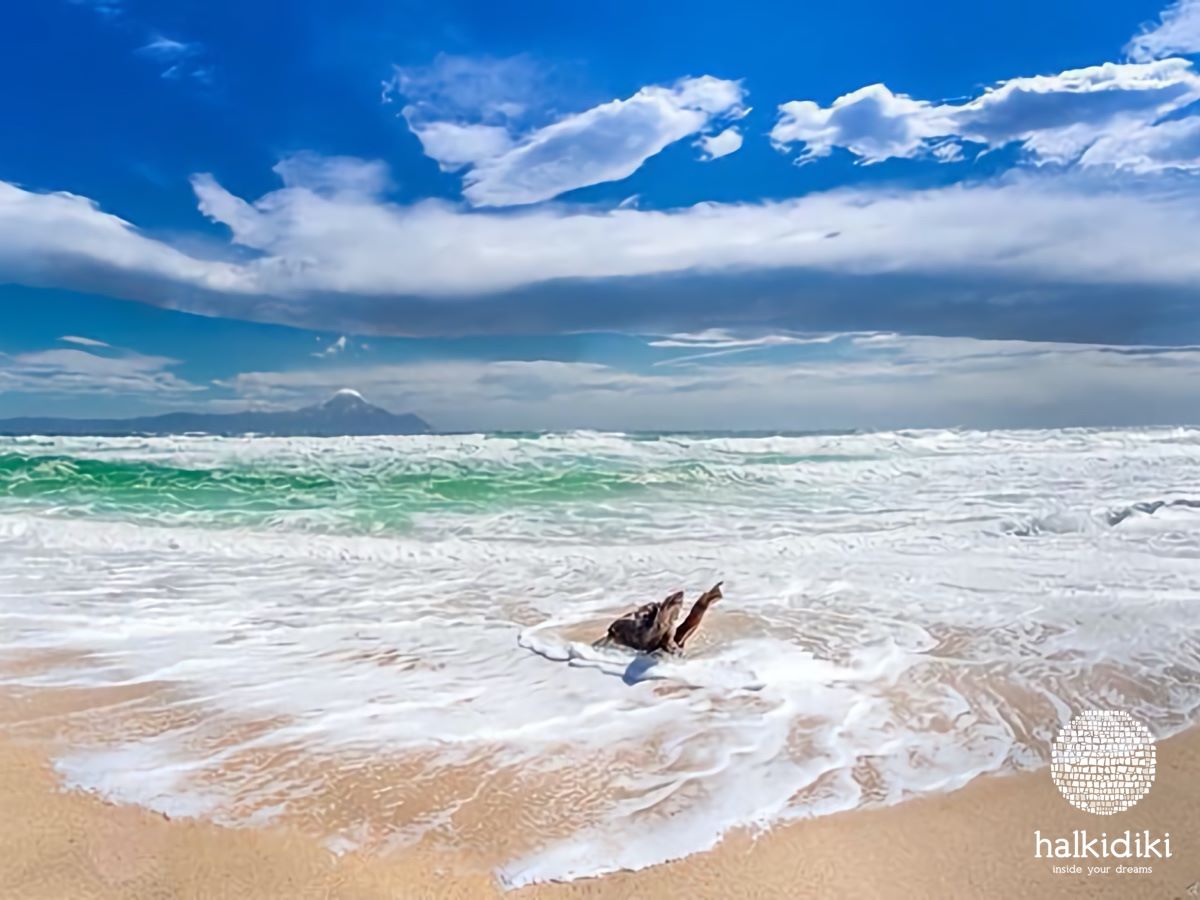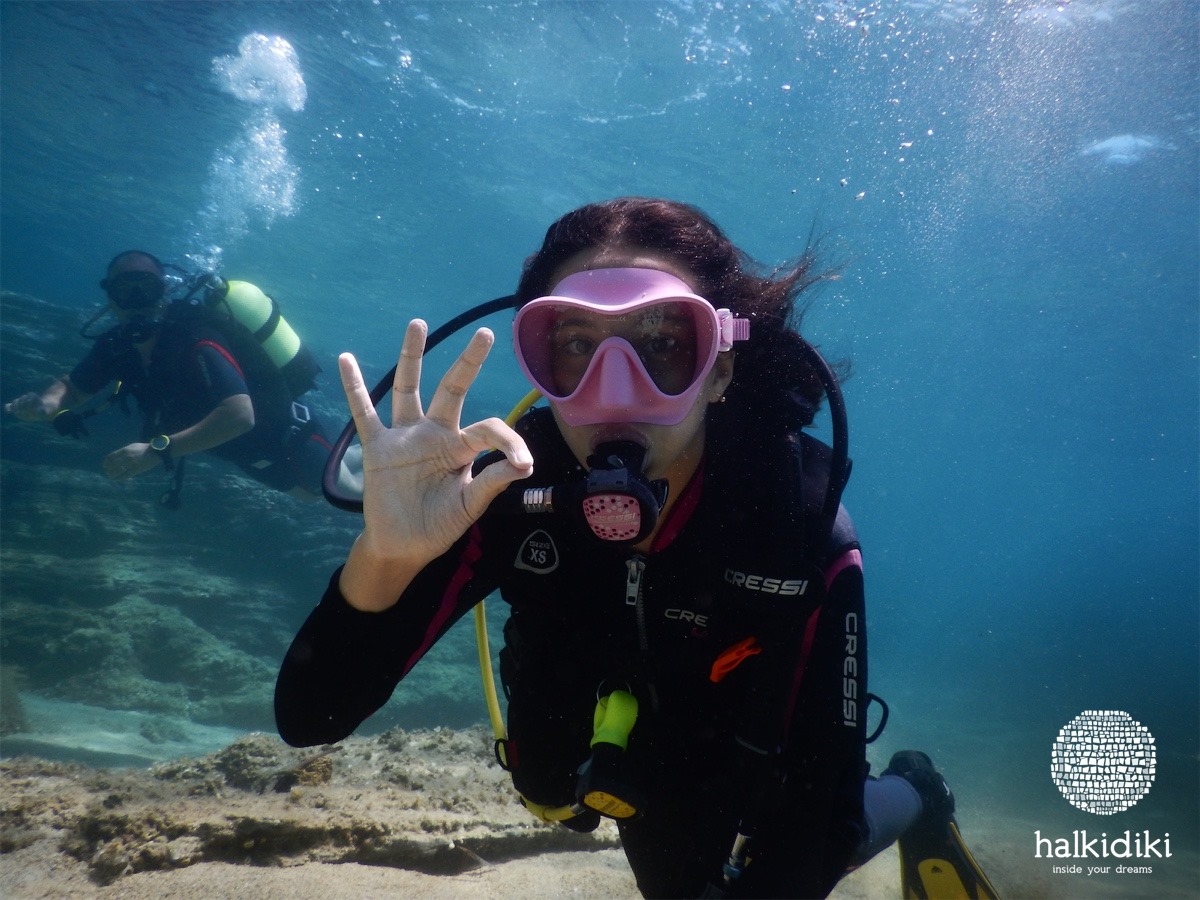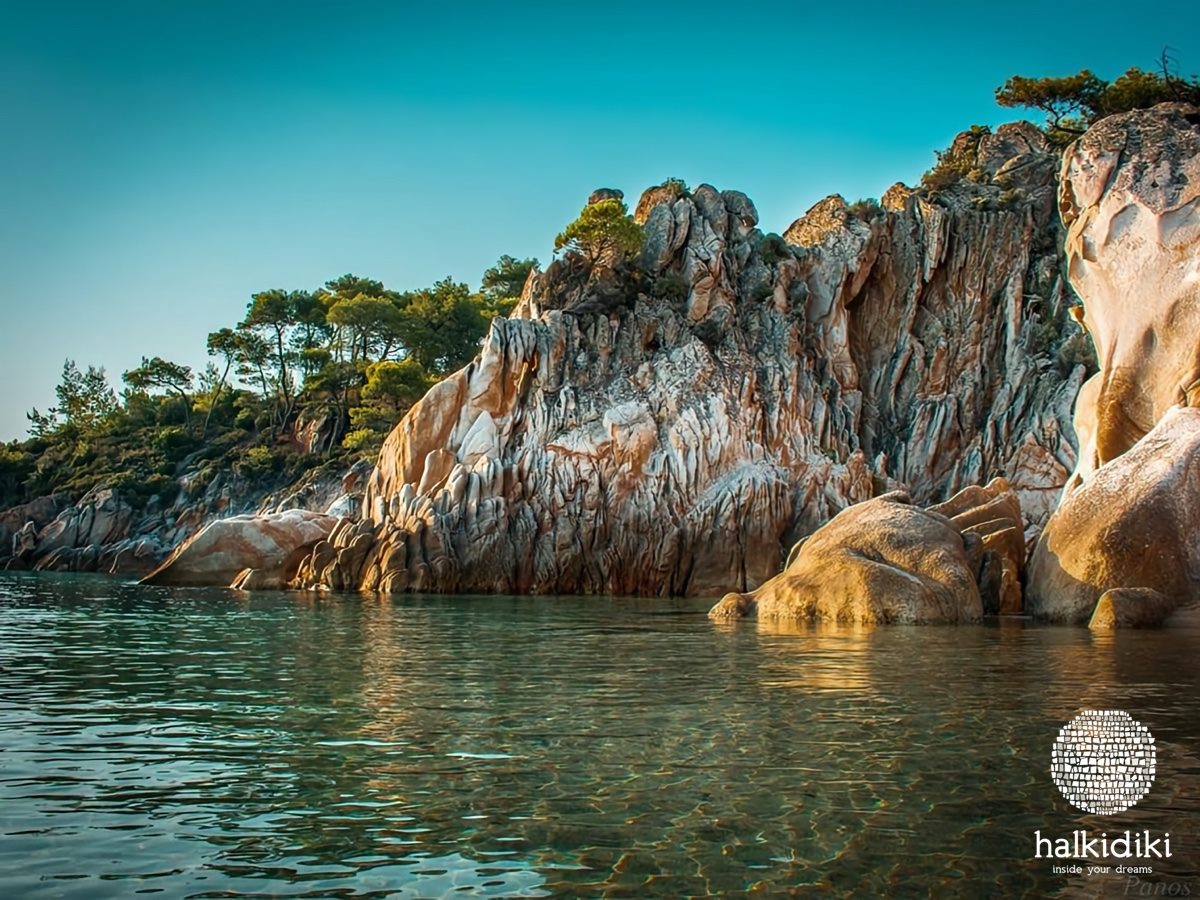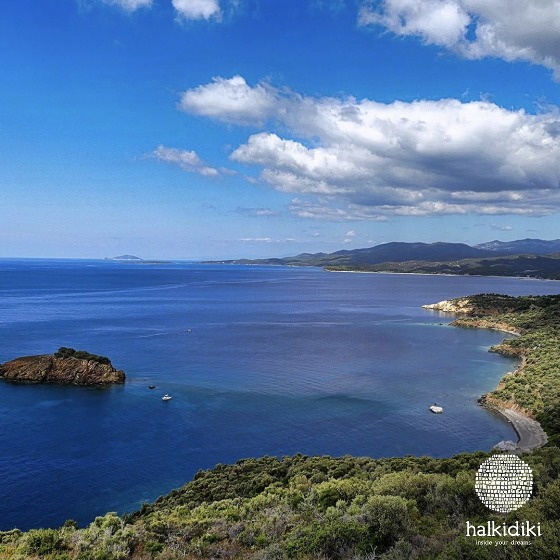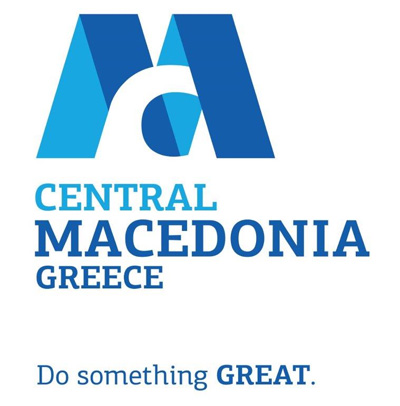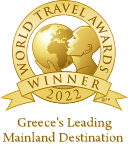Current Situation COVID-19 in Halkidiki
Halkidiki finally opens its doors to the world once more with the official restart of tourism in Greece, 14 May! Everything that we've been dreaming about for the past year, all the things that we love and all the things that we love to do are back! Halkidiki is back and we are so extremely excited!
The most exquisite, sparkling turquoise waters, our faces meeting the cool embrace of the summer wind and the warm kisses of the sun, our feet diving into the soft, golden sand while the clear blue sky embraces our day, stepping into the endless, vibrant green forests, breathing the trees and the leaves and the wood while our steps leading us up the hill to spectacular views, where the two blues -the sky and the sea- meet are back!
Halkidiki is in red colour based on epidemiological indicators used by the European Centre for Disease Prevention and Control (ECDC) and the World Health Organization (WHO). Follow the link to see, real-time, the epidemiological map of Greece: https://bit.ly/3gXTRmL
UPDATED: December, 7th, 2021
Are the Greek borders open?
As of May 14th, “Macedonia” Thessaloniki International Airport (SKG) resumed international flights to all residents of EU++ (Andorra, Iceland, Lichtenstein, Norway, Switzerland, San Marino, Vatican, the Principality of Monaco), USA, UK, Albania, Armenia, Australia, Azerbaijan, Bahrein, Belarus, Bosnia and Herzegovina, Brunei, Canada, China, Israel, Japan, Jordan, Kosovo* (This designation is without prejudice to positions on status, and is in line with UNSCR 1244/1999 and the ICJ Opinion on the Kosovo declaration of independence), Kuwait, Lebanon, Moldova, Montenegro, New Zealand, North Macedonia, Qatar, the Russian Federation*, Saudi Arabia, Serbia, Singapore, South Korea, Turkey, UAE, Ukraine. The quarantine will not be required.
*For the Russian Federation, from 30.6 passengers must carry a negative PCR molecular test result from a testing laboratory taken up to 72 hours before arrival, or a negative antigen (rapid) test result taken up to 48 hours before arrival regardless if they are vaccinated or not.
Travellers are allowed to enter from the land borders through the entry gates of Promachonas, Ormenio, Evzonoi, Nymfaia, Niki, Doirani, Kristallopigi, Kipi*, Kakavia, Kastanies* and Exohi on a 24h basis.
*For Kipi and Kastanies land borders, there is limit of 1500 passengers per week.
24 hours before entering Greece, all visitors will have to fill in a Passenger Locator Form (PLF) where they will provide their contact details in the country. Targeted or random testing will take place to aid the epidemiological research. Please, fill in the PLF here.
What are the entry requirements to visit Greece?
To ensure the protection of your health, as well as the health of your loved ones and all those involved, you need to fulfil the following requirements to visit Greece:
Before arrival:
Step 1
Tourists must fill in the Passenger Locator Form (PLF) no later than 23:59 (11.59 PM) of the day before arriving in Greece. For more information, please click here.
Step 2
Prior to departure, all travellers must ensure that they carry one of the following forms of certification of their health condition. Acceptable documents include:
- A negative PCR molecular test results from a laboratory; the test must be taken up to 72 hours before entry or a rapid test performed within 48 hours before arrival. This test is mandatory for all tourists (including children over the age of 12), regardless of the epidemiological situation in the country of departure.
- A vaccination certificate is issued by a certified authority. Acceptable vaccines are Pfizer BioNtech, Moderna, Astra Zeneca/Oxford, Novavax, Johnson + Johnson/Janssen, Sinovac Biotech, Gamaleya (Sputnik), Cansino Biologics, Sinopharm.
- A certificate of recovery from the SARS-CoV-2 virus infection issued by a public authority or a certified laboratory. The certificate is issued 30 days after the day of the first positive COVID-19 test and is valid for 180 days after it.
- Proof that the traveler was tested positive with COVID-19 in the past 30 to 180 days. This can be proved either by presenting a positive PCR molecular or an antigen test result performed by an authorized laboratory or a medical certificate confirming that the holder was tested positive with SARS-CoV-2 virus infection.
All certificates must include the critical information (i.e. number of doses and their respective dates) in English, German French, Italian, Spanish, Russian and the person’s full name must match the name on the passport or any other recognized travel document.
Step 3
Upon arrival
Travellers arriving in Greece are subject to:
- Sampling RAPID antigen tests at the entrance gates for selected individuals drawn from a targeted sampling system, based on the ”EVA” system.
- Mandatory isolation if they test positive for SARS-Cov-2, following a sampling test. In this case, the travellers and their travel companions are accommodated in quarantine hotels, where they will undergo further PCR testing to confirm the initial diagnosis. Guests will stay in seclusion hotels for at least 10 days. The expenses of the accommodation in quarantine hotels are covered by the Greek state.
Compliance with the health protocols during transport and throughout your entire stay in Greece is the key factor that will allow all of us to stay safe and return to normality.
Which Greek land borders are open to international travellers?
Travellers are allowed to enter from the land borders through the entry gates of Promachonas, Ormenio, Evzonoi, Nymfaia, Niki, Doirani, Kristallopigi, Kipi*, Kakavia, Kastanies* and Exohi on a 24h basis.
*For Kipi and Kastanies land borders, there is a limit of 1500 passengers per week.
Please note that all travellers must fill in the PLF form and present one of the above documents.
Will I have to self-isolate upon arrival?
Incoming air travellers may have to take a random or targeted test. Those who test positive will be quarantined for at least 10 days in a designated hotel in Halkidiki. The Greek state will be covering the cost of treatment for any tourists (including their families) who test positive for Covid-19 during their visit.
Are accommodation facilities open in Halkidiki?
All hotels and other accommodation facilities like villas, rental apartments & studio, camping sites etc have started operating from May 15th and on.
The accommodation, as well as the rest of the tourist facilities in Halkidiki, are ready to provide safe conditions to the visitors, according to the measures and recommendations of the Greek National Public Health Organization (EODY). The measures are related to the functioning of the hotels and private accommodation, tourist agencies, camps and marinas, air traffic, private and public transportation, restaurants, bars and beach bars.
All the tourism stakeholders aim to provide maximum safety to the guests as well as to protect the health of the local people along with the health of all the Greeks and international citizens who plan to visit Halkidiki.
All the information regarding the details of the opening of each accommodation facility can be found on their official website and social media.
Employees in the Greek tourism sector are vaccinated with the general population, according to government planning. Until their vaccination, all employees are obliged to undergo tests twice per week (self-test or rapid test). Furthermore, they are encouraged to test even more frequently, in order to ensure timely isolation.
Which services are open in Halkidiki?
In Halkidiki, all services are open. More specifically, here’s what is now open (or about to open) in Halkidiki this month:
- Restaurants and bars have reopened their outdoor spaces and there is a ban on standing customers in all night centres (bars, clubs, live music centres, bar-restaurants, café-bars etc). The staff are required to wear a mask or face covering, while customers are encouraged to wear a mask;
- Open-air archaeological sites such as Ancient Stagira, Ancient Olynthos, Aristotle's Park are open with strict protocols along with museums;
- Organised beaches are operating again with strict health protocols;
- Retail shops and malls are open;
- Hairdressers, barbers, beauty and nail salons are open (by appointment);
- Parks have reopened and fishing in coastal municipalities is permitted again;
- Live shows in outdoor spaces and theatre venues resume for seated attendance only, with a fixed occupancy rate of 50%;
- There is no curfew.
Keep in mind that masks must now only be worn outdoors in busy places but there is the mandatory use of a face mask in all -public and private- indoor spaces.
Does public transportation work?
The public coaches in Halkidiki are functioning according to the adhered measures and recommendations as well as the ferry boat in Tripiti to reach the island of Ammouliani. The use of masks is mandatory when travelling by taxi (2 passengers/per ride or 4 passengers, if they are family members), coach and train and there is an 85% capacity restriction. A safe distance must be kept and masks are mandatory during the ride or cruise.
What should I do if I am infected with Covid-19 in Halkidiki?
If you notice any symptoms of the coronavirus, such as fever or cough or you have been in close contact with the person infected with Covid-19, you should:
- Self-isolate in the room and avoid contact with other people.
- Notify the hotel reception or the doctor-on-call.
- Hotels must have special medical equipment in case of an outbreak, such as disposable gloves and masks, antiseptics, cleaning wipes, aprons, long-sleeved gown (PPE), laser thermometer.
- The doctor on-call will advise you through the next steps
- Also, consult the Visit Greece app.
National coronavirus helpline: 1135 (24/7).
You can find further COVID-19 advice for travellers here.
